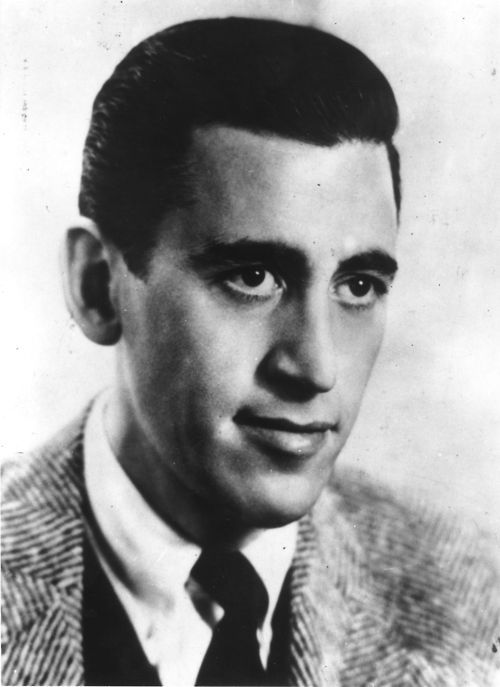 J.D. Salinger died today at 91, and like so many writers and bloggers and journalists reflecting on his writing, life and eccentricities, I am stumbling.
J.D. Salinger died today at 91, and like so many writers and bloggers and journalists reflecting on his writing, life and eccentricities, I am stumbling.
He was a gifted and esoteric writer. He was an inspiration. He was a mystery clinging to privacy. It seems that this latter characterization has intrigued the public almost as much as his craftsmanship. I you count yourself among this lot, you might enjoy a wander over to Kenneth Slawenski’s post “J.D. Salinger’s Untold Stories: Tales Of A Recluse“. If you’re experiencing Salinger’s passing as a sort of memento mori you might be find company in Ron Rosenbaum’s June 1997 article for Esquire, The Man in the Glass House.
The silence surrounding this place is not just any silence. It is the work of a lifetime. It is the work of renunciation and determination and expensive litigation. It is a silence of self-exile, cunning, and contemplation. In its own powerful, invisible way, the silence is in itself an eloquent work of art. It is the Great Wall of Silence J.D. Salinger has built around himself. (Ron Rosenbaum, Longform)
Like his infamous antihero who briefly yearned to wander west pretending to be mute (or deaf? I don’t remember which) Salinger horded silence. Words are written, not explained. Perhaps they can’t or shouldn’t be explained. Perhaps this is Salinger’s legacy, the reminder that words like graffiti on a cave wall are at best an imperfect roadmap for fleeting truths. No, that’s not it. That’s a haul of bollocks! Let’s try again…
Words are enough. Too much, even. They are the best we can do, and asking them to morph into reality — either through the magic of cinema or the exegesis of the author — is self indulgent voodoo. Looks like I’m off the rails again.
Salinger’s Holden Caulfield is at once an archetypal storyteller and audience, a warrior against hypocrisy and a guardian of childhood innocence. He embodies the inevitable contradictions of adolescence and of the writing life. I suspect this literary anchor has inspired and encourage a great many storytellers.
Jonathan Safran Foer has stated that, ‘many readers were created by The Catcher in the Rye, and many writers, too. He and his characters embodied a kind of American resistance that has been sorely missed these last few years, and will now be missed even more.’ (The Penguin Blog)
Where from there? I’m tossing darts in the dark and missing the bulls eye. Missing the dartboard altogether. No doubt Salinger would have been mortified with the swell of memorials.
- “Who wants flowers when you’re dead? Nobody.” ~ J.D. Salinger
- “I’m sick of not having the courage to be an absolute nobody.” ~ J.D. Salinger
- “I am a kind of paranoid in reverse. I suspect people of plotting to make me happy.” ~ J.D. Salinger
- “An artist’s only concern is to shoot for some kind of perfection, and on his own terms and not any one else’s.” ~ J.D. Salinger
That last quotation is a suitable closing note. As wouuld be any of the thirteen short stories that Salinger published in The New Yorker between 1946 and 1965 including “A Perfect Day for Bananafish” and “Raise High the Roof Beam, Carpenters“. (Available online to subscribers.) Or better yet? Read or re-read The Catcher in the Rye.
N.B. With so many pretensions Latin-isms (In memoriam, Memento mori) cluttering a single, brief blog post, I’d better lather on one more, Nota bene: I pinched this photograph of J.D. Salinger from Soup, but it appears to be a stock photo since it appears all over the place. (In other words, the credit unknown. Apologies.)
Like this:
Like Loading...





